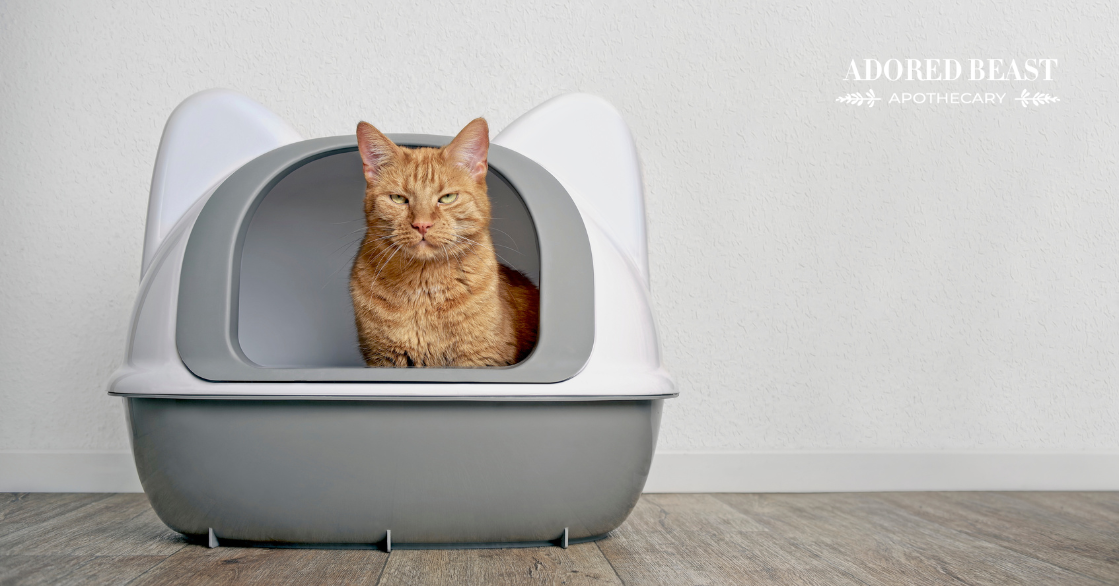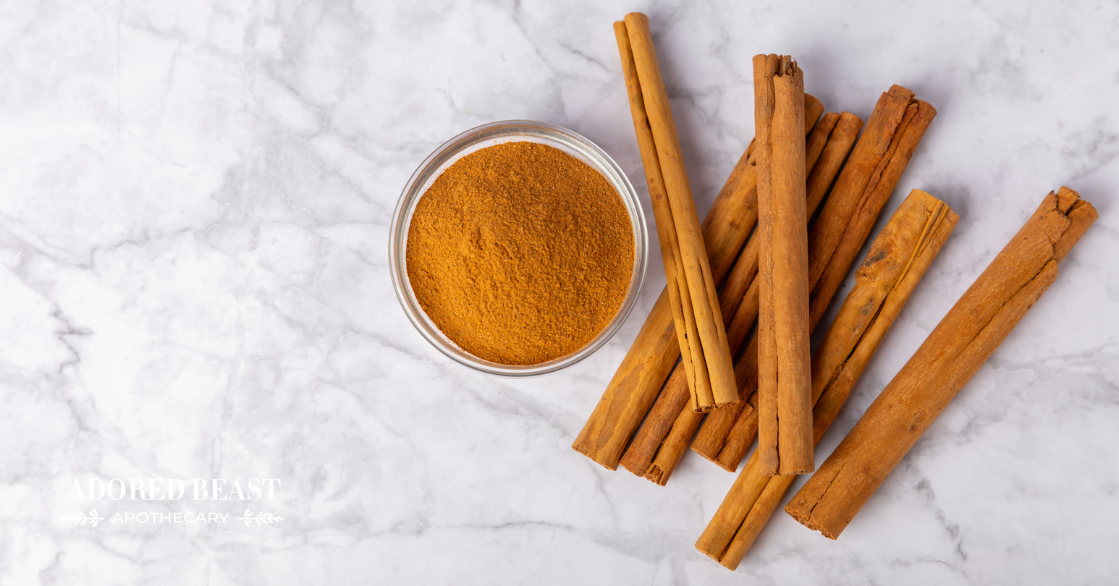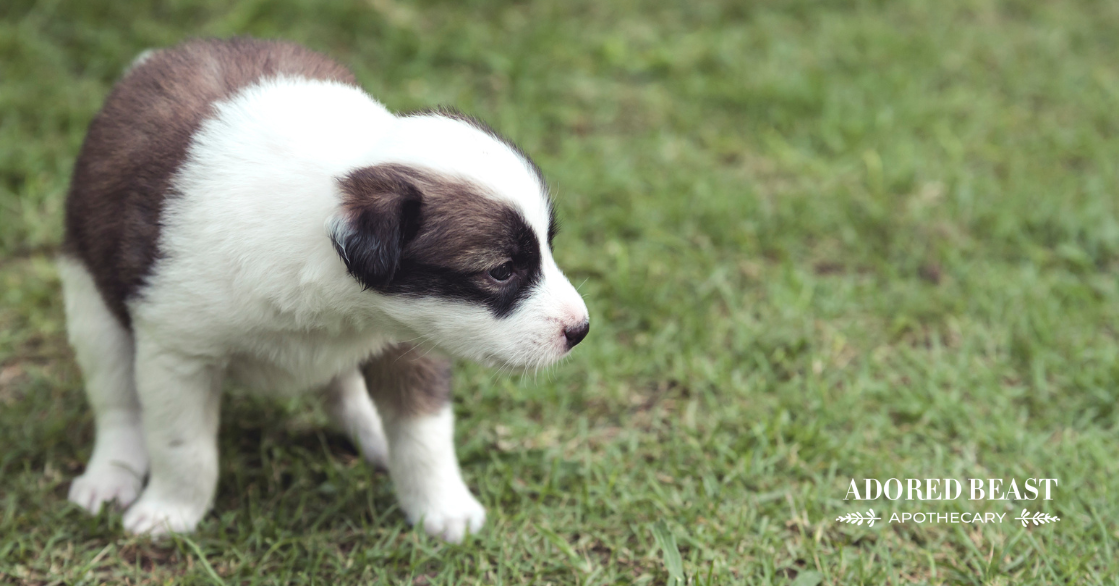The liver is one of those organs that we often think little about until there’s an issue.
But it actually has a big role to play in everyday health and wellness (our animals’ and our own).
Understanding the functions of the liver, the factors that can damage it, and its role in histamine regulation sheds light on the importance of liver support, especially in managing allergies.
(And given that springtime is the season of the liver according to Traditional Chinese Medicine (TCM), this is especially appropriate right now. Of course we want to focus on the liver all year long, but in this season of transition, when the liver is considered to be the most vulnerable to insults, a little extra support can go a long way.)
So, how can you support your dog’s liver, and when should you start?
What Does the Liver Do?
The liver plays a vital role in numerous physiological processes, making it essential for the proper functioning of the body.
- Detoxification: The liver acts as the body’s primary detoxification organ, filtering out toxins, drugs, and metabolic waste products from the bloodstream.
- Metabolism: It plays a central role in metabolism, including the breakdown of fats, carbohydrates, and proteins, as well as the synthesis of essential molecules like cholesterol and hormones.
- Storage: The liver stores essential nutrients such as vitamins, minerals, and glycogen, releasing them into the bloodstream as needed to maintain optimal physiological function.
- Bile Production: The liver produces bile, a substance that aids in the digestion and absorption of fats in the small intestine.
- Immune Function: It plays a crucial role in immune function, helping to remove bacteria, viruses, and other pathogens from the bloodstream.
And our pets’ livers can face assaults from a variety of sources…
Several factors can contribute to liver damage in dogs.
- Exposure to toxins such as certain medications, chemicals, pesticides, and poisonous plants can harm the liver.
- Feeding a poor diet can also have an impact; diets high in processed foods, artificial additives, and excessive fats can strain the liver and contribute to inflammation and oxidative stress.
- Previous bacterial, viral, and parasitic infections can affect liver function and lead to liver disease.
Another thing that can impact liver health is allergies. While allergies themselves don’t necessarily “damage” the liver, the extra pressure placed on the liver to cleanse the body of external triggers can sometimes weaken its ability to function as it should.
The good news is, supporting liver health is connected to protecting against allergies!!
Histamine Regulation and Allergies
Histamine is a chemical involved in the body’s immune response, triggering inflammation and other allergic symptoms in response to allergens.
While histamine is primarily associated with allergic reactions, it also plays a role in liver function. Excessive histamine levels can overwhelm the liver’s detoxification pathways, leading to inflammation and oxidative stress.
Supporting the liver’s ability to metabolize and eliminate histamine is essential for managing allergies and promoting overall health. By optimizing liver function through proper nutrition, supplementation, and lifestyle factors, you can help mitigate the effects of allergies and reduce the burden on the liver.
Yes, you read that right: supporting the liver can help regulate histamine levels in the body, thereby reducing allergic reactions! That’s huge.
How to Support a Dog’s Liver
There’s never a bad time to start supporting the liver. We like a gentle detox a few times a year, with the changing seasons. But we especially like to show it a little TLC as spring approaches to help with the histamine regulation and to prep the body for the eventual onslaught of allergies!
So how do we do it?
1. We focus on the diet.
As mentioned, what we feed can have a huge impact on the liver. Ultra-processed food artificial additives, and excessive fats all tax the liver (and the other portal organs), making it hard for it to function as it should. Try to feed your dog a balanced, species-appropriate diet rich in whole foods, including lean proteins, fresh fruits, and vegetables. Incorporate liver-supportive foods into your dog’s diet, such as leafy greens (e.g., kale, spinach), cruciferous vegetables (e.g., broccoli, cauliflower), and antioxidant-rich fruits (e.g., berries, apples). These foods provide essential vitamins, minerals, and phytonutrients that promote liver function and detoxification.
From a TCM approach: young, green-leafy vegetables and sprouts, especially dandelion greens, helps with liver circulation. Small amounts of radish, as well carrots and celery, can help with bile secretion. Romaine and asparagus can be useful for swelling in the liver.
2. We feed liver supporting supplements.
Certain herbs and botanicals have been traditionally used to support liver health in dogs. Milk thistle, dandelion root, burdock root, chamomile, and turmeric are all examples of herbs with hepatoprotective (protective of the liver) properties that can help support liver function and reduce inflammation.
3. We eliminate exposure to harmful toxins.
Minimize your dog’s exposure to environmental toxins, chemicals, and pollutants that can harm the liver. Use natural cleaning products, avoid pesticides and herbicides in your yard, skip the chemical-based flea and tick meds, and choose organic or non-toxic shampoos and grooming products.
4. We get outside and exercise.
We all know that there are a multitude of benefits for our animals (and ourselves) of regular exercise. But did you know those benefits extend to the liver? Regular physical activity helps promote circulation, metabolism, and overall well-being, which can support liver function. Aim for daily exercise sessions tailored to your dog’s age, breed, and health status. And once you come back inside, do a quick soak of betadine and water (mixed to the colour of iced tea). This will help wash off the toxins from outside – things like pesticides, environmental toxins, etc. – with no rinsing required since it’s completely natural and non-toxic.
5. We manage stress levels.
Chronic stress can negatively impact liver function and overall health. In fact, research in humans found that, during stressful times, natural killer cells are expanded in the liver and in some cases, contributed to liver cell death. The study also found that in the part of the brain that controls the liver, stress was found to weaken blood flow which could lead to or trigger liver damage. Create a calm and supportive environment for your dog, provide plenty of mental stimulation, and practice stress-reducing activities such as massage, aromatherapy, and gentle exercise.
Your dog’s liver plays a crucial role in maintaining their overall health, including histamine regulation and detoxification. Supporting liver health through a balanced diet, regular exercise, stress reduction, and targeted supplementation can help protect the liver and promote overall well-being, especially in managing allergies and inflammatory conditions.












